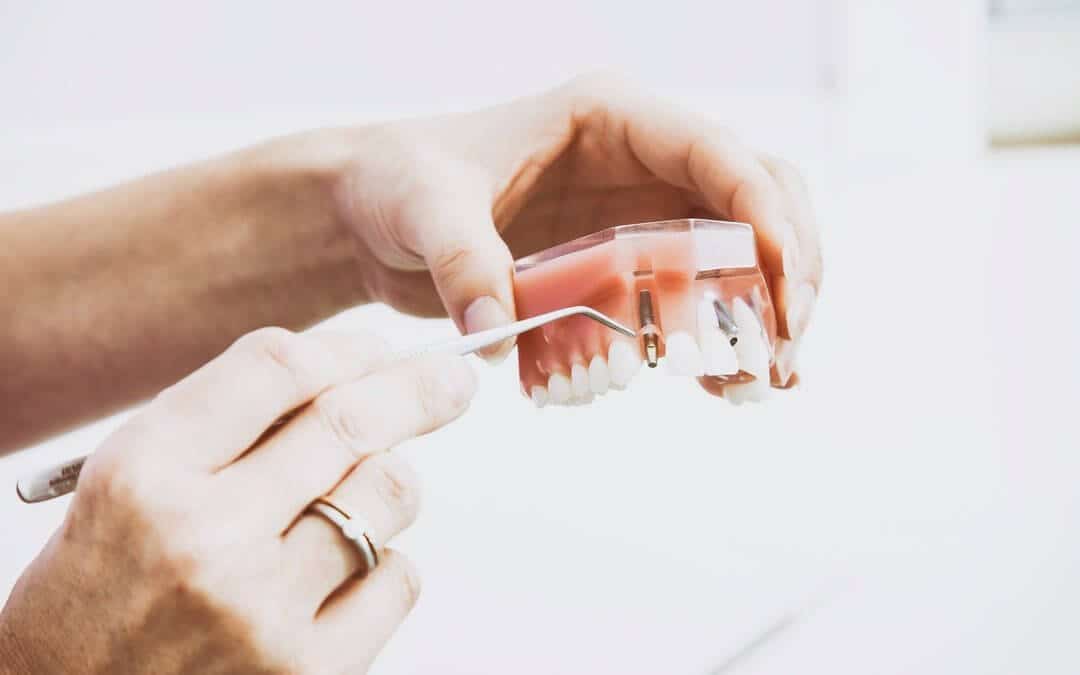Three million people in the US have dental implants, and the rates are increasing at about 500,000 each year. It’s obvious that a smile can brighten up your day and make you approachable to others. But what if you lost all your teeth?
Whether you’re contemplating dentures, currently have them, or know someone who has them, you’re most likely to have some questions about them. You want to make sure that this procedure will bring your smile back without any complications. If you want to know more, continue reading to learn more about denture implants.
What Exactly Are Dentures?
Dentures are prosthetic teeth and gums that are custom-made to fit your mouth. It functions to replace natural missing or extracted real teeth. Dentures may be complete or partial, which means they can replace all the teeth on each side of the gum line or only a few missing teeth.
Whichever kind of dentures you need, they will be custom-made to suit your mouth and resemble your natural teeth.
What Material Are They Made Of?
Dentures were made of porcelain or plastic in the past, while contemporary dentures are usually composed of a strong resin. Denture teeth contain materials that are more delicate than natural teeth. It can easily break or fracture if dropped or mishandled.
The material is more likely to degrade than natural teeth, requiring replacement every five years. The denture supporting framework functions to secure the fake teeth and mimics the natural gum line. It is the same resin as the teeth or a more flexible polymer material that fits tightly against the natural gum line.
Why Should You Wear Dentures?
Dentures enhance your smile by replacing missing teeth. They also support the tissues around the cheeks and lips. Dentures help with chewing, allowing you to maintain a consistent diet and guarantee adequate nutrition. Finally, dentures are an option for replacing teeth that causes severe discomfort and oral health problems, such as those with rotten roots or significant damages.
What Are the Different Types of Denture Implants
There are various dentures to choose from, and your dentist will access your oral health and provide the proper choices. Here are different types of dentures to consider:
Partial Dentures
Partial dentures are often utilized with other tooth replacement techniques. It is often used when the surrounding natural teeth are not strong enough to support a dental bridge. They are also used if more than two teeth are gone.
The partial dentures are fitted into the gum line on which they will rest and secure adjacent to the natural teeth. This helps prevent them from moving and can be removed at any time for cleaning or sleeping purposes.
Full Dentures
Complete dentures or Full dentures function to replace all your natural teeth. They are placed at the top or bottom gum line and secured with suction and/or glue. They are readily detachable, much like partial dentures.
Overdentures
Overdentures are an option if conventional dentures are unpleasant or if you have a few natural teeth remaining. Overdentures are placed over the roots of natural teeth and rest on top of them or on dental implants if no natural teeth are available to cover them. This kind of denture is more pleasant for some and is also removable.
Dentures Supported by Implants
These types of dentures are secured in place by dental implants. A dental implant is a titanium post permanently attached to the jawbone and can replace any number of teeth. They consist of an implant, a metal post (often titanium), and a bespoke crown that mimics the appearance of a natural tooth.
Implant-supported dentures may be attached in various ways, but they should be cared for and handled the same as conventional dentures. Although it is more common to have them placed in the lower jaw, but people usually have implants in both.
How to Thoroughly Clean Dentures
Regardless of the dentures you wear, all dentures, like natural teeth, must be cleaned regularly. Even though they are artificial teeth, but they can still accumulate germs, plaque, and tartar.
To clean your dentures, remove them from your mouth and run clean water over them to loosen any food particles lodged between teeth, along the gum line, or under the framework. Using a brush with soap to thoroughly brush your dentures, and rinse afterward.
Keeping Your Dentures in Good Condition
Always take your dentures out before bedtime to prevent damages and to let your gums relax. To prevent your dentures from drying out and becoming deformed, immerse them completely in warm water. Use denture-soaking solution sparingly if your dentures include metal components since the solution tends to tarnish metal structures.
What Happens If an Implant Fails to Function Properly?
It is critical to see your dentist or periodontist if you have symptoms consistent with a failed implant. They will also check to see if you need any denture repair.
Here are several possible indications of implant failure to watch out for:
- A moving implant
- Discomfort, especially while biting or chewing
- Redness
- Swelling
- Bleeding
- Gums retreating
- Pus
Taking Care of a Failed Implant
In the case where bone loss has occurred surrounding the implant, a bone graft can assist in the regeneration of bone tissue before placing a new implant. It may take several months until you get your replacement implant in this scenario. If you prefer not to replace a failed implant, you can consider dental bridges.
If substantial bone loss has not occurred, peri-implantitis may be managed without removing the implant. This procedure includes thoroughly cleaning and decontaminating the implant and surrounding region and administering antibiotic medication.
Where to Get Denture Implants?
If you are still unsure if denture implants are appropriate for you or have additional questions or concerns, speak with a dentist to explore the best course of action. Several dental clinics offer this procedure, but the dentures cost varies from one location to the next. Before choosing a clinic, it’s vital to ensure that they have quality material for permanent dentures.
If you are ready to take your smile to the next level, contact us today for affordable dentures and the implant procedure.

